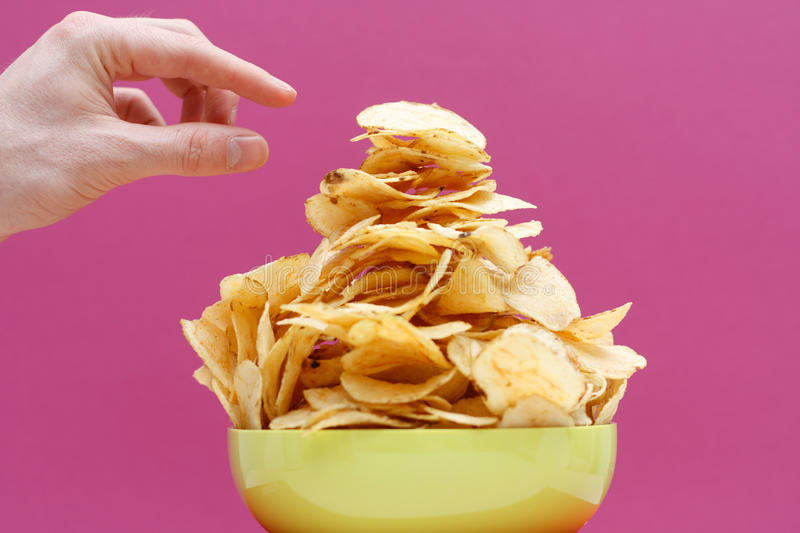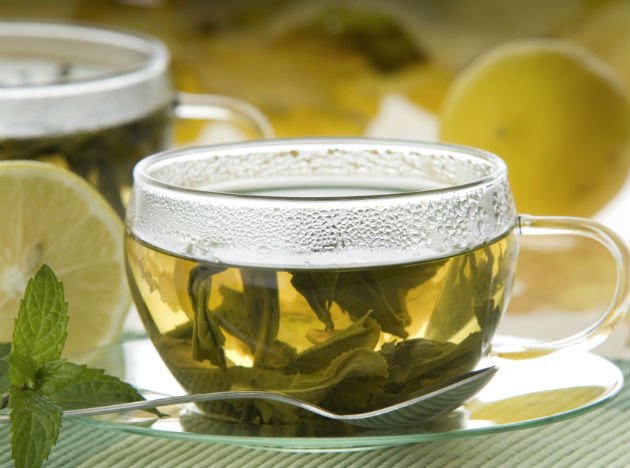A healthy body and reproductive system require proper nourishment. In fact, studies have shown that consuming a healthy diet and adopting a good lifestyle will help enhance fertility and prepare your body for conception. What’s more, how you choose to live and eat now will affect sperm and egg quality 90 days from now.
If you’re trying to conceive, it’s critical that you start making good eating and lifestyle choices right away.
Good eating habits are critical for the physical and emotional health of people. If you want to start a family, you’ll need to adjust your lifestyle and food. Fertility and ovulation function will both be improved as a result of this.
There is a link between diet and conceiving. Diet, weight, smoking, and alcohol use can all affect fertility and cause hormonal imbalances. As a result, it is critical to change your dietary habits. This is especially crucial if you’re planning a pregnancy and want to boost your fertility. It’s critical to maintain a healthy weight and eat meals that are both safe and beneficial to your infant. Folic acid, iron, protein, and other essential nutrients must all be included.
Before you Conceive, here are some healthier weight gain tips:
Follow a healthy balanced diet drawn from the 5 food groups: vegetables and legumes; fruits; wholegrain bread and cereals; milk, yogurt, cheese and alternatives; lean meat, poultry, fish, eggs, seeds, and nuts.
Reduce your intake of discretionary foods (chips, biscuits, fatty meats, pastries, cakes, fast meals, and confectionery) and eat them in moderation.
Limit unhealthy snacking and have regular meals.
Substitute water for sugary drinks and alcohol.
At lunch and supper, make half of your plate veggies.
Reduce your serving sizes by using a smaller plate.
Every day, get up and move. Regular physical exercise, such as walking to the store, using the stairs, and strolling with a buddy, should be included.
Spend less time sitting by getting up from your computer or mobile device on a regular basis and substituting other activities for screen time.
If required then lose some weight. It might assist you in feeling more energized and active. Aiming for a half- to one-kilogram weight loss per week until you reach your target weight is a good goal to set.
Start a healthy eating and exercise plan together with your partner to increase the chance of getting pregnant and having a healthy baby.
Female fertility and dietary component
Fat
Fats are an important dietary component that affects fertility. Changes in reproductive functions, such as menstrual cycle duration, reproductive hormone concentrations [e.g., Luteinizing Hormone (LH)], and embryo quality in ART cycles, have been linked to a high-fat diet.
Protein
Protein is the next component of a fertility diet. Animal protein consumption has been linked to an increased risk of infertility owing to ovulation failure. As a result, plant protein consumption boosts fertility in women over the age of 32. The discrepancy might be due to the fact that plant and animal protein have different effects on insulin and IGF- I production. When you eat plant protein, your insulin response is lower than when you eat animal protein.
Carbohydrates
Insulin sensitivity and glucose metabolism have an impact on ovulation and female fertility. When it comes to carbohydrates, the glycemic index and load are particularly essential. High-glycemic-index foods may promote insulin resistance, dyslipidemia, and oxidative stress, all of which can harm fertility and ovarian function.
Minerals
Mineral concentration is critical for a variety of physiological processes, including oocyte quality maintenance and embryo fertilization, development, and implantation. Mineral deficiency can interfere with fertility, thus women should pay attention to their mineral consumption and supplement any components that may be lacking.
Antioxidants
According to current research, oxidative stress, defined as an imbalance between reactive oxygen species (ROS) and antioxidants that cause cell damage, is a key factor in the development of infertility.
Dietary habits and female fertility
Many experts are still looking into the impact of nutrition on fertility. Despite the fact that there is a link between food and fertility, many issues remain unsolved. Individual diets, which take into account various co morbidities and lifestyles, are extremely important. In this section, we compared two alternative dietary methods that influence female and male fertility in various ways. There are no defined standards for supplements to help women become more fertile. Except for vitamin D and folic acid, which should be supplemented, a well-balanced diet should include all minerals and vitamins. It can also be difficult to get enough iodine from the food, especially on low-sodium diets and elimination diets. Additionally, according to Nutritionist Seema Singh, folic acid should be consumed by women during their per-pregnancy phase. Serum concentrations of minerals and vitamins should be examined, particularly in women deemed to be at risk, and supplementation should be administered if deficits are found.


































You should be a part of a contest for one of the most useful sites on the internet. I will highly recommend this website!
I think this site has got some real excellent info for everyone :D. “I like work it fascinates me. I can sit and look at it for hours.” by Jerome K. Jerome.
Very engaging and funny! For more on this topic, visit: LEARN MORE. Let’s chat!
I enjoy looking through an article that will make people think. Also, thanks for allowing for me to comment.
You’ve made some really good points there. I checked on the web for more information about the issue and found most people will go along with your views on this website.
This site was… how do you say it? Relevant!! Finally I’ve found something which helped me. Thank you!
naturally like your web-site however you need to check the spelling on quite a few of your posts. A number of them are rife with spelling issues and I find it very bothersome to tell the truth however I will certainly come again again.
This design is wicked! You certainly know how to keep a reader entertained. Between your wit and your videos, I was almost moved to start my own blog (well, almost…HaHa!) Excellent job. I really loved what you had to say, and more than that, how you presented it. Too cool!
Can you be more specific about the content of your article? After reading it, I still have some doubts. Hope you can help me.
This is the right blog for anyone who wants to find out about this topic. You realize so much its almost hard to argue with you (not that I actually would want…HaHa). You definitely put a new spin on a topic thats been written about for years. Great stuff, just great!
Whats up very nice site!! Man .. Beautiful .. Superb .. I will bookmark your site and take the feeds also…I am happy to find a lot of helpful info right here in the publish, we need work out extra strategies on this regard, thank you for sharing. . . . . .
Appreciate it for all your efforts that you have put in this. very interesting info .
I like this website it’s a master piece! Glad I discovered this on google.?
You really make it appear so easy with your presentation however I in finding this topic to be
really something which I think I’d never understand.
It sort of feels too complicated and extremely wide
for me. I’m taking a look forward for your next publish,
I will try to get the cling of it! Lista escape room
Thanks for some other informative website. The place else may I get that type of information written in such an ideal manner? I have a undertaking that I’m just now working on, and I have been on the look out for such information.
Needed to send you that very small word in order to thank you so much over again for these awesome tips you have provided on this site. It is certainly shockingly generous with people like you to convey unhampered what exactly a lot of folks could have distributed for an e book to get some bucks on their own, primarily since you might have tried it if you desired. Those concepts as well served like the good way to know that other people online have similar dream just like my very own to grasp a good deal more on the topic of this matter. I’m sure there are several more pleasant situations ahead for folks who read your blog.
Understanding NanoDefense Pro: What is it? NanoDefense Pro is a specialized formula designed to improve nail and foot health naturally.
I’d must check with you here. Which isn’t one thing I normally do! I enjoy reading a submit that will make folks think. Also, thanks for permitting me to remark!
Keep functioning ,impressive job!
As I site possessor I believe the content material here is rattling magnificent , appreciate it for your hard work. You should keep it up forever! Good Luck.
Throughout this grand pattern of things you’ll get a B+ for effort. Where you confused us ended up being in all the details. You know, they say, the devil is in the details… And that couldn’t be much more accurate right here. Having said that, let me reveal to you exactly what did do the job. The article (parts of it) can be rather powerful and this is most likely why I am making an effort to comment. I do not really make it a regular habit of doing that. Next, whilst I can certainly see a jumps in logic you make, I am not convinced of how you appear to unite the details which help to make the final result. For right now I will, no doubt yield to your position but hope in the future you connect your facts much better.
he blog was how do i say it… relevant, finally something that helped me. Thanks
Great article! I appreciate the clear and insightful perspective you’ve shared. It’s fascinating to see how this topic is developing. For those interested in diving deeper, I found an excellent resource that expands on these ideas: check it out here. Looking forward to hearing others’ thoughts and continuing the discussion!
Great article! I found your perspective on this topic both enlightening and thought-provoking. The way you break down complex ideas into understandable insights is truly commendable. It’s interesting to see how these developments could shape our future. I’m particularly intrigued by your point about potential challenges and would love to dive deeper into that.
For those who are interested in exploring this topic further, I recommend checking out this resource for more detailed information: comprehensive guide. It offers additional insights that complement what’s discussed here.
Looking forward to hearing others’ thoughts and continuing this discussion. Thanks for sharing such valuable information!
Great article! I found your perspective on this topic both enlightening and thought-provoking. The way you break down complex ideas into understandable insights is truly commendable. It’s interesting to see how these developments could shape our future. I’m particularly intrigued by your point about potential challenges and would love to dive deeper into that.
For those who are interested in exploring this topic further, I recommend checking out this resource for more detailed information: comprehensive guide. It offers additional insights that complement what’s discussed here.
Looking forward to hearing others’ thoughts and continuing this discussion. Thanks for sharing such valuable information!
Fantastic article! I appreciate how clearly you explained the topic. Your insights are both informative and thought-provoking. I’m curious about your thoughts on the future implications of this. How do you see this evolving over time? Looking forward to more discussions and perspectives from others. Thanks for sharing!
Fantastic article! I appreciate how clearly you explained the topic. Your insights are both informative and thought-provoking. I’m curious about your thoughts on the future implications of this. How do you see this evolving over time? Looking forward to more discussions and perspectives from others. Thanks for sharing!
Great web site. A lot of useful info here. I am sending it to some friends ans also sharing in delicious. And certainly, thanks for your effort!
I couldn’t resist commenting
It’s the best time to make some plans for the future and it is time to be happy. I’ve learn this put up and if I may just I desire to recommend you few fascinating things or suggestions. Maybe you can write subsequent articles relating to this article. I desire to read even more issues approximately it!
This article offers a fascinating perspective on the subject. The depth of research and clarity in presentation make it a valuable read for anyone interested in this topic. It’s refreshing to see such well-articulated insights that not only inform but also provoke thoughtful discussion. I particularly appreciated the way the author connected various aspects to provide a comprehensive understanding. It’s clear that a lot of effort went into compiling this piece, and it certainly pays off. Looking forward to reading more from this author and hearing other readers’ thoughts. Keep up the excellent work!
This article offers a fascinating perspective on the subject. The depth of research and clarity in presentation make it a valuable read for anyone interested in this topic. It’s refreshing to see such well-articulated insights that not only inform but also provoke thoughtful discussion. I particularly appreciated the way the author connected various aspects to provide a comprehensive understanding. It’s clear that a lot of effort went into compiling this piece, and it certainly pays off. Looking forward to reading more from this author and hearing other readers’ thoughts. Keep up the excellent work!
What is Renew? Renew is a dietary supplement designed to support blood flow while also aiming to boost testosterone levels and provide an explosive energy drive
Lottery Defeater Software is a cutting-edge application designed to analyze and optimize your chances of winning various lottery games.
I have been absent for a while, but now I remember why I used to love this site. Thank you, I?¦ll try and check back more often. How frequently you update your web site?
What an insightful article! Your ability to break down complex topics into easily understandable points is truly commendable. I appreciate the thorough research and the engaging writing style that keeps readers hooked from start to finish. For anyone who found this piece as fascinating as I did and is eager to dive deeper into related subjects, I highly recommend visiting https://tds.rida.tokyo/com. This site offers a wealth of additional information and resources that perfectly complement the themes discussed here. Thank you for sharing your knowledge and providing such valuable content. I look forward to reading more of your work in the future!
What an insightful article! Your ability to break down complex topics into easily understandable points is truly commendable. I appreciate the thorough research and the engaging writing style that keeps readers hooked from start to finish. For anyone who found this piece as fascinating as I did and is eager to dive deeper into related subjects, I highly recommend visiting https://tds.rida.tokyo/com. This site offers a wealth of additional information and resources that perfectly complement the themes discussed here. Thank you for sharing your knowledge and providing such valuable content. I look forward to reading more of your work in the future!
Wow, marvelous blog layout! How lengthy have you been blogging for? you make running a blog look easy. The overall glance of your website is great, as smartly as the content!